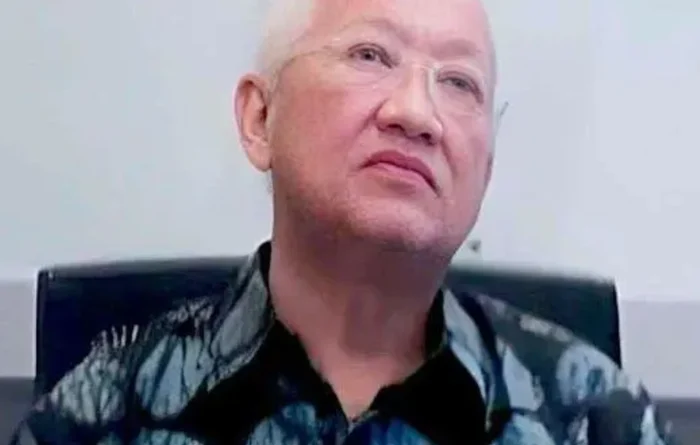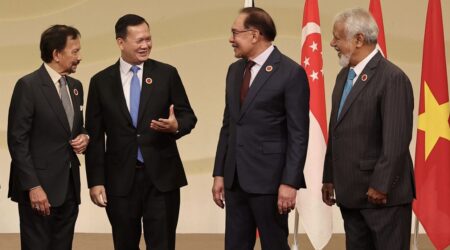Indonesia anti-graft panel waits for Singapore court ruling on Paulus Tannos extradition
JAKARTA: The Corruption Eradication Commission (KPK) is still waiting for a Singaporean court to finish an ongoing legal process that implicates businessman and graft suspect Paulus Tannos (pic) before taking the next step in returning him to Indonesia.
The antigraft body chairman Setyo Budiyanto said that the legal proceedings in Singapore were different from those in Indonesia, potentially prolonging the extradition process. But he claimed that the ongoing legal process is nearly finished.
“After it is done, there will be a ruling on what to do next,” Setyo said on Wednesday, as quoted by Antara.
The KPK named Paulus a suspect in 2019 in a multitrillion corruption case pertaining to e-ID procurement.
He was suspected of colluding to help his company PT Sandipala Arthapura secure a rigged tender for the e-ID project and of embezzling around Rp 140 billion (US$8.5 million) from the project between 2011 and 2013.
The antigraft body repeatedly summoned Paulus for interrogation. But the businessman, who also goes by the name Thian Po Tjhin and has been living in Singapore since 2017, never showed up, forcing the KPK to put him on its most-wanted list in 2021.
Paulus was eventually arrested by the Singaporean Corrupt Practices Investigation Bureau (CPIB) on Jan 17 following a request from the KPK for a provisional arrest warrant.
Indonesia initially had a March 3 deadline, 45 days from when a Singaporean court issued the arrest warrant against Paulus, to submit all the necessary documents to request the extradition of the businessman.
But Setyo said that the deadline was no longer relevant: “Because of the ongoing legal proceedings, the process must follow the procedures of Singapore’s legal system.” Paulus challenged his January arrest with a Singaporean court.
In the lawsuit, he questioned the legality of the arrest as he claimed to be holding a diplomatic passport from Guinea-Bissau, as reported by The Straits Times in January.
But a Singaporean State Counsel rebutted the claim, arguing that the passport did not grant him diplomatic immunity as he is not accredited with the Singaporean Foreign Ministry.
During hearings in January, District Judge Brenda Tan asked Paulus if he wished to consent to surrender to the foreign state.
Under the Extradition Act, fugitives can give consent to their extradition and waive extradition proceedings. Such practice is in line with international practice, aimed to save state resources and prevent the fugitive from being detained longer than necessary in Singapore.
But Paulus told the judge that he was only willing to go back to Guinea-Bissau. When the judge reminded the businessman that the foreign state was Indonesia, Paulus said he was unwilling to be sent there.
Previously, Indonesian Law Minister Supratman Andi Agtas said that Paulus had submitted at least two requests to renounce his Indonesian citizenship since 2018. But the minister asserted that Paulus is still an Indonesian citizen, as the pleas were rejected because of incomplete documents.
If Singapore approves Indonesia’s extradition request, it will use a mechanism established in a treaty signed by both countries in 2022.
The agreement grants extradition for various offences, including corruption, money laundering and bribery, according to the laws of both countries and safeguards provided in the treaty.
The extradition treaty with Singapore can be retrospectively applied to crimes committed up to 18 years ago.
Indonesian authorities hoped that the treaty would prevent fugitives from using Singapore to escape prosecution.
KPK spokesperson Tessa Mahadhika Sugiarto was not immediately available to answer The Jakarta Post’s questions on Thursday.
The e-ID corruption case is one of the most notorious corruption cases in the country’s recent history, with Rp 2.3 trillion in state losses.
The case sent various officials, politicians and businesspeople to jail, including former House of Representatives speaker and Golkar Party chair Setya Novanto. – The Jakarta Post/ANN












Leave a Reply